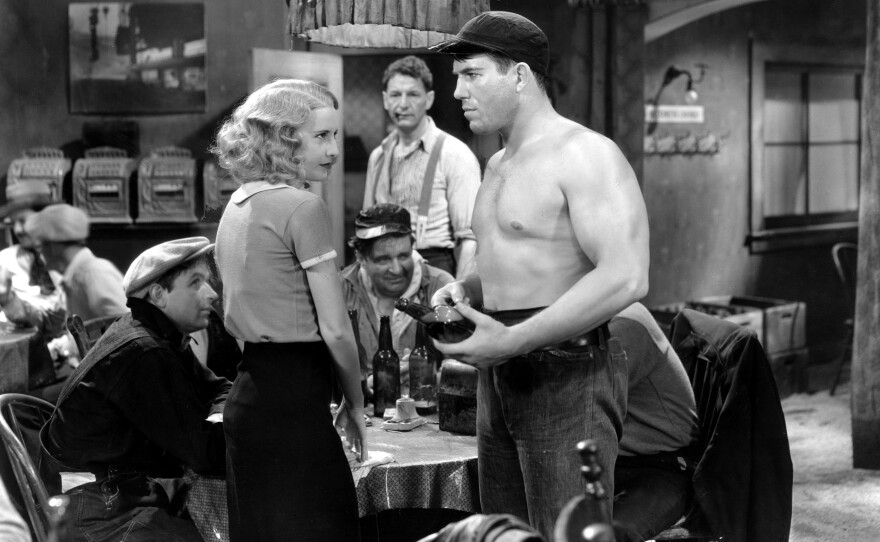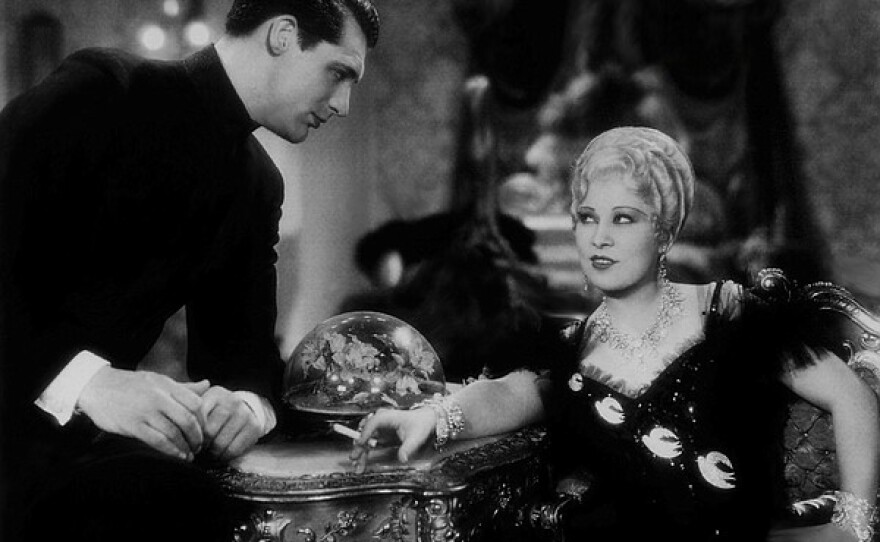Breaking the Commandments: Pre-Code Hollywood
All films screen at 1 p.m. at Digital Gym Cinema
Sept. 8: “Possessed”
Oct. 6: “Island of Lost Souls” and “White Zombie”
Nov. 3: “Dinner at Eight”
Dec. 8: “Scarface” and “Public Enemy”
Films made between 1930 and 1934 have come to be known as pre-Code and display defiance of the self-censorship rules known as the Production Code that Hollywood laid down for itself. I talk about the delicious naughtiness and sensational social realism of these films with Danny Reid of Pre-Code.com.
The film series continues this Sunday at 1:00 pm with Joan Crawford and Clark Gable in "Possessed" (not to be confused with Crawford's later, 1947 film of the same name).
Film Geeks SD kicked off a new year-long film series called Breaking the Commandments: Pre-Code Hollywood last month at Digital Gym Cinema. The series continues on Feb. 3 with Mae West in "I'm No Angel," a film she also wrote.
As one of the volunteer programmers for Film Geeks SD, I will be co-presenting pre-Code films one Sunday a month at Digital Gym Cinema. The film series highlights some witty sex comedies ("Design for Living," "Cock of the Air," "Dinner at Eight"), gritty dramas ("Baby Face"), horror ("Island of Lost Souls," "White Zombie"), musicals ("Golddiggers of 1933"), and gangster films ("Scarface," "Public Enemy").
In order to explore what pre-Code Hollywood is all about, I decided to invite Danny Reid onto to the podcast. He runs a blog called Pre-Code.com that is dedicated to exploring the films of this era. On Twitter Reid describes himself as "Dedicated to celebrating Hollywood films released 1930 to '34, when movies were complex and a hell of a lot of fun."
I couldn't agree more.
I spoke with him briefly last month for Midday Edition, but for Cinema Junkie, we get to talk in depth about the films in the Breaking the Commandments series and about what defines pre-Code Hollywood. I met Reid at the TCM Classic Film Festival where pre-Code films are showcased every year. TCM is also dedicated to highlighting these films on air. So if I can manage to get you hooked on these amazing movies you have at least one place to seek them out.

The pre-Code era is the time when Mae West could openly proclaim that a "hard man is good to find" and Norma Shearer could respond to her husband's adultery with some sleeping around of her own so she could tell her philandering spouse, "I've balanced our accounts." The surprise of these films is how modern they sometimes feel, and in some ways, they represent a sort of freedom that Hollywood movies never quite recaptured with the same gusto and deliciousness.


